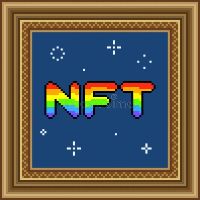 NFT for Attorneys is yet another installment in a series to help busy executives take a dive into the new world of crypto in bite-sized chunks. Here is this week’s bulleted list for NFT for Attorneys:
NFT for Attorneys is yet another installment in a series to help busy executives take a dive into the new world of crypto in bite-sized chunks. Here is this week’s bulleted list for NFT for Attorneys:
- A non-fungible token (NFT) is a micro-transaction stored on a blockchain that can be associated with a property, either physical, digital, or intellectual, in order to claim authenticity.
- Currently, the most popular form of NFT is digital art. In fact, some NFT’s in this space have been sold for up to $69MM.
- NFT art has a potential for massive money laundering and terrorist financing, reports the US Department of Treasury. This is not a new phenomenon. Physical art has historically been a method of the same. However, the anonymity of cryptocurrency transaction and blockchain marketplaces provide more shade to crooks than previously imagined.
- Etherium and Solana are the two most popular blockchains for NFT’s, while the Bitcoin blockchain remains primarily a source of currency trade.
- NBA, MLB and NFL, have begun trading cards as NFT’s but they are on private decentralized block chains. This means that, although a user can track provenance and prove ownership, there are no open source checks and balances to prevent hacking or cheating by the controlling organization.
- A purchase on an NFT on a centralized block chain does not guarantee ownership. This is similar to your purchase of a Kindle book. If Amazon changes their terms of service, or decides to eject you from its platform, you relinquish ownership of your purchases from that platform.
- The video games and metaverses are positioning NFT’s to be the digital asset of the future. This is a good place to leave off. Next letter will be on the metaverse.
Other articles include: Web3 for Attorneys, Blockchain for Attorneys, Crypto Wallets for Attorneys, Crypto Mining for Attorneys, and Metaverse for Attorneys.
